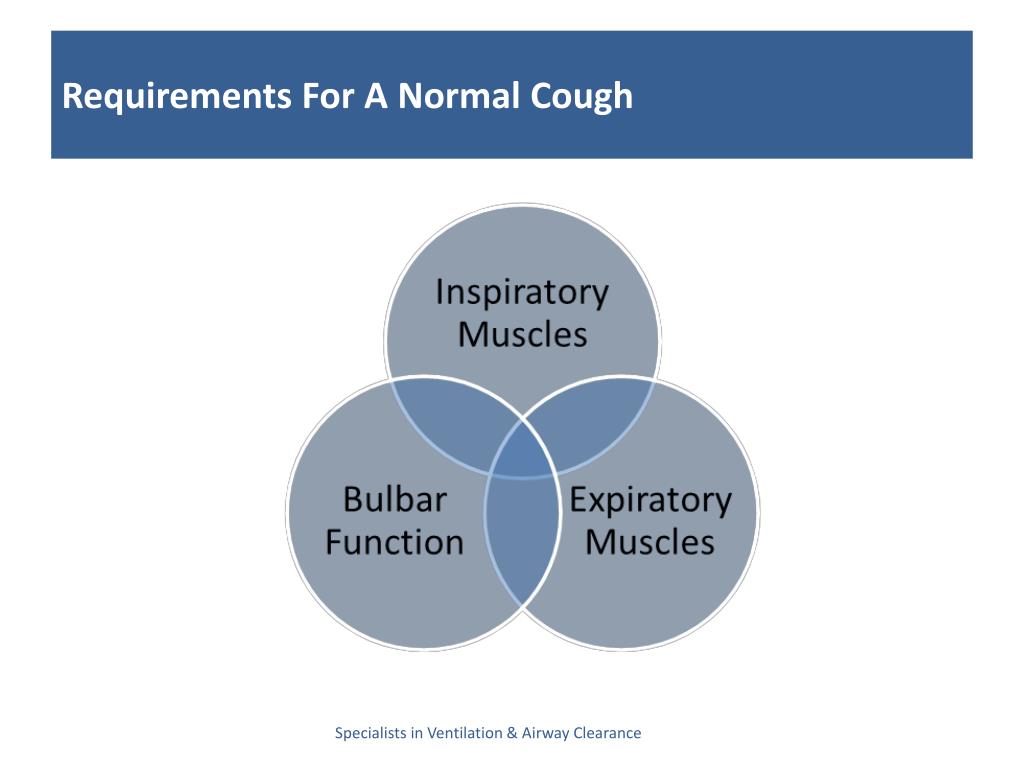
Severe asthma exacerbation or life-threatening asthma exacerbation.The following conditions should be considered in all adults who present with a cough accompanied by signs of respiratory distress, hemodynamic instability, and/or red flags for cough (see also “ Dyspnea”): Evaluate for and treat life-threatening causes of cough immediately if present.Ĭonsider pertussis in patients with risk factors, e.g., underimmunization and/or contact with an infected individual. In endemic areas, consider pulmonary tuberculosis in all patients with a cough of any duration. Irritation, e.g., due to environmental triggers, tobacco smoke.New onset of a chronic condition, e.g., UACS, bronchiectasis, cystic fibrosis, ciliary dyskinesia, interstitial lung disease.Atypical respiratory infection, e.g., mycoplasma pneumonia, pertussis.Gastrointestinal conditions, e.g., GERD.Interstitial lung disease (e.g., sarcoidosis, silicosis).


Mechanism of cough reflex: initiation of the cough reflex arc leads to.Generation of efferent signal in the medulla and initiation of cough via the vagus, phrenic, and spinal motor nerves.Transmission along the afferent pathway via the internal laryngeal nerve of the vagus nerve( CN X) to the cough center in the medulla.Irritation of cough receptors in the nose, sinuses, upper and lower respiratory tract (see the triggers above).Inflammatory mediators: bradykinin, prostaglandin E2.Inhaled/aspirated solid or particulate matter (e.g., smoke, dust).Triggers: cough may be voluntary or a reflex to airway irritants/triggers.See also “ Dyspnea” and “ Chest pain.” PathophysiologyĬough is a protective mechanism that forcefully expels air from the lungs to clear secretions, foreign bodies, and irritants from the airway. Treatment depends on the underlying etiology and often includes symptomatic therapy.

Chronic cough or the presence of red flag symptoms (including dyspnea, fever, hemoptysis, and weight loss) indicate that further investigation is required.

The cause of an acute cough can often be determined clinically with a thorough medical history and physical examination. Common causes of chronic cough in adults include UACS, asthma, gastroesophageal reflux disease ( GERD), nonasthmatic eosinophilic bronchitis ( NAEB), and certain medications (e.g., ACE inhibitors, sitagliptin). Subacute cough is often a sequela of a URTI (postinfectious cough) but can also be caused by upper airway cough syndrome ( UACS) or pertussis. The most common causes of acute cough are upper respiratory tract infections ( URTIs), exacerbations of chronic conditions, and pneumonia. A cough can be classified as acute, subacute, or chronic, in addition to productive (with sputum expectoration) or dry. A cough is a protective mechanism that forcefully expels air from the lungs to clear secretions, foreign bodies, and irritants from the airway, and can be triggered by various conditions.


 0 kommentar(er)
0 kommentar(er)
